
Define deviance, and explain the nature of deviant behaviorDifferentiate between methods of social control
- Subject:
- Social Science
- Sociology
- Material Type:
- Module
- Author:
- James Farmer
- Date Added:
- 08/26/2018

Define deviance, and explain the nature of deviant behaviorDifferentiate between methods of social control

This course examines systematically, and comparatively, great and middle power military interventions, and candidate military interventions, into civil wars from the 1990s to the present. These civil wars did not easily fit into the traditional category of vital interest. These interventions may therefore tell us something about broad trends in international politics including the nature of unipolarity, the erosion of sovereignty, the security implications of globalization, and the nature of modern western military power.
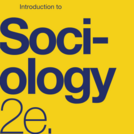
Introduction to Sociology 2e adheres to the scope and sequence of a typical, one-semester introductory sociology course. It offers comprehensive coverage of core concepts, foundational scholars, and emerging theories, which are supported by a wealth of engaging learning materials. The textbook presents detailed section reviews with rich questions, discussions that help students apply their knowledge, and features that draw learners into the discipline in meaningful ways. The second edition retains the book’s conceptual organization, aligning to most courses, and has been significantly updated to reflect the latest research and provide examples most relevant to today’s students. In order to help instructors transition to the revised version, the 2e changes are described within the preface.
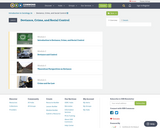

Define deviance, and explain the nature of deviant behaviorDifferentiate between methods of social control
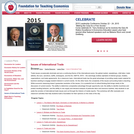
Trade issues occasionally dominate and are a continuing theme of the international scene: the global market, sweatshops, child labor, trade deficits, the euro, sanctions, tariffs, embargoes, and the EU, NAFTA, WTO, the seemingly endless alphabet of interest groups, treaties, organizations, and trade agreements. As a classroom topic, international trade has the great advantage of providing ready-made material for teachers wanting to engage student interest in current events. On the other hand, the complexity of the issues surrounding trade is daunting. While economic reasoning doesn't guarantee resolution of the issues, it is a powerful tool of critical thinking that brings clarity to the discussion of current events. The ability to determine comparative advantage through opportunity cost, the ability to identify incentives and predict resulting behavior, and the ability to use supply and demand analysis of particular labor and resource markets, help students to set aside the emotion of international trade issues and cut through the rhetoric of media reports.
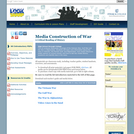
This kit analyzes Newsweek coverage of the Vietnam War, Gulf War and the War in Afghanistan. Students will learn core information about the wars in Vietnam, the Persian Gulf, and Afghanistan, how media influences public opinion of current events, and how to ask key media literacy questions and identify bias in the news.
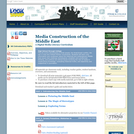
This kit covers stereotyping of Arab people, the Arab/Israeli conflict, the war in Iraq and militant Muslim movements. Students will learn core information and vocabulary about the historical and contemporary Middle East issues that challenge stereotypical, simplistic and uninformed thinking, and political and ethical issues involving the role of media in constructing knowledge, evaluating historical truths, and objectivity and subjectivity in journalism.